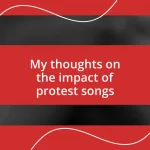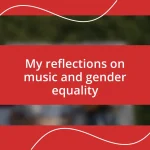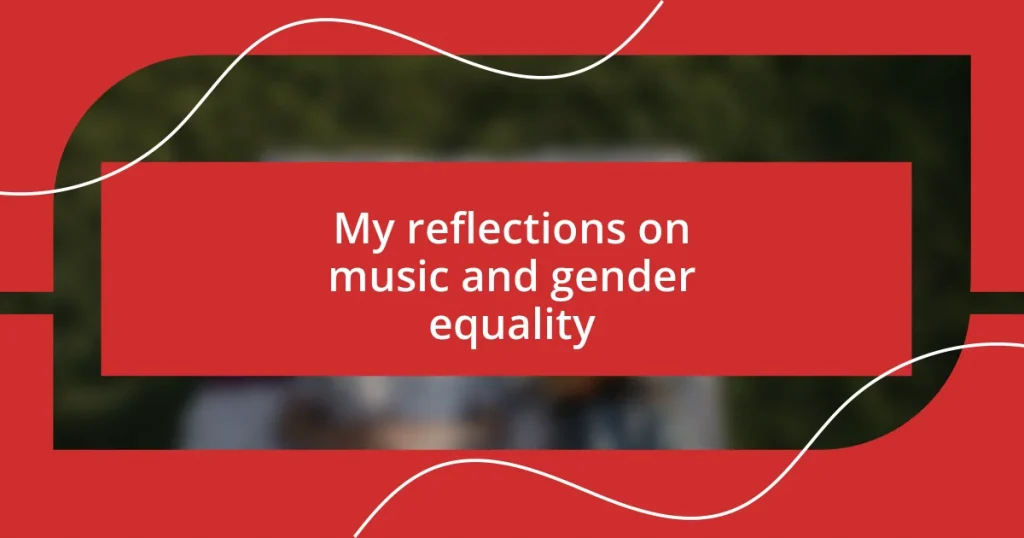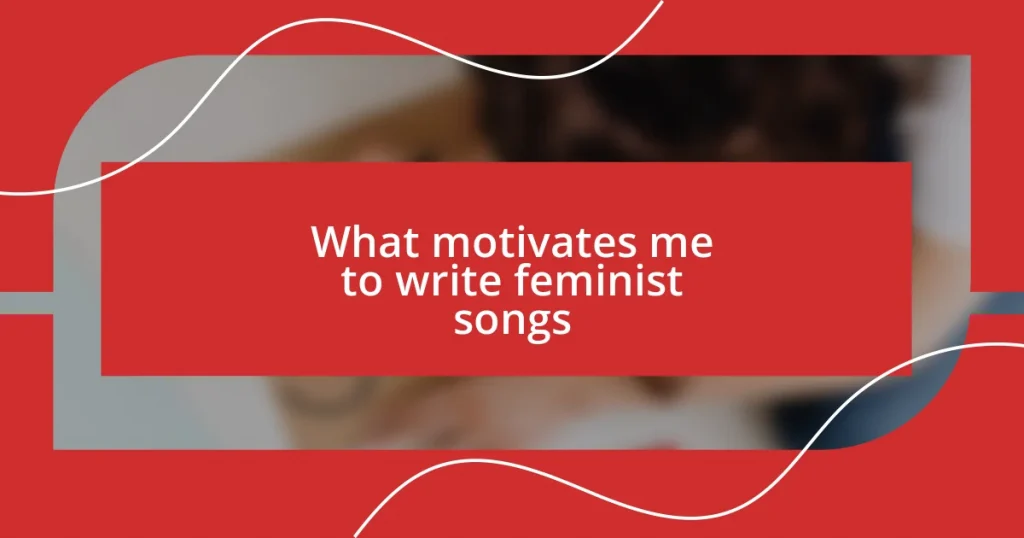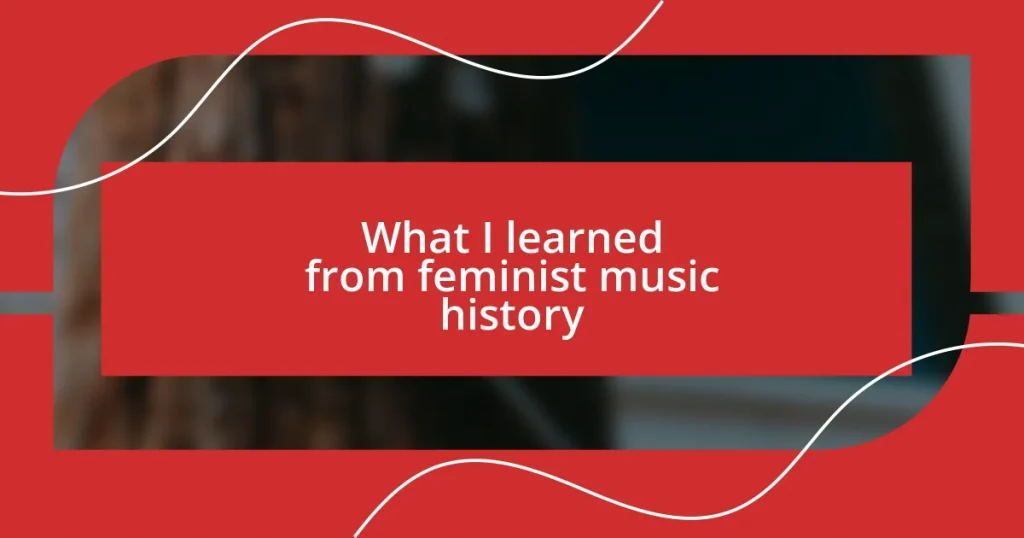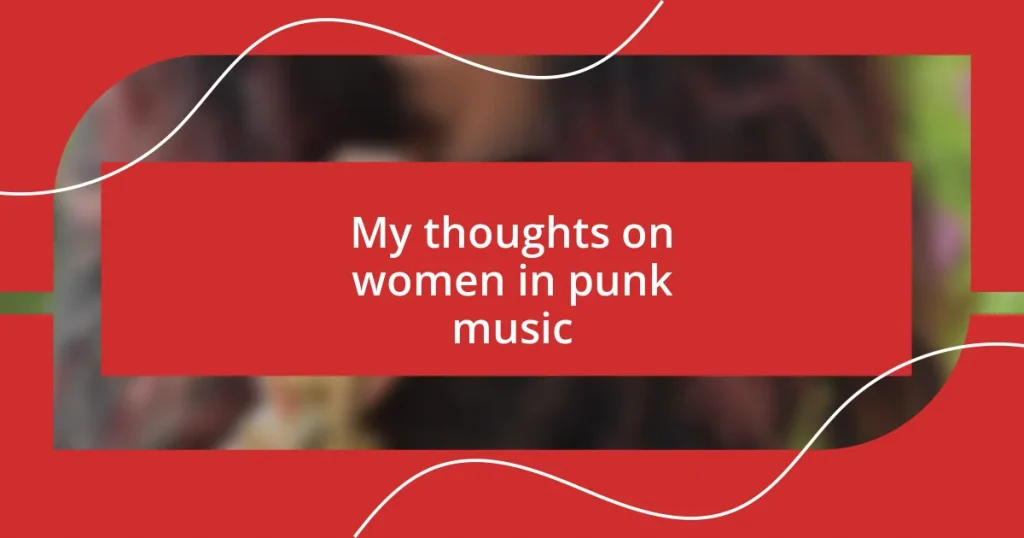Key takeaways:
- Gender representation in music is often male-dominated, limiting diverse voices and narratives.
- Female musicians face significant challenges, including scrutiny based on appearance, limited opportunities, and networking barriers.
- Strategies for promoting gender equality include mentorship programs, advocating for gender parity in events, and fostering inclusive environments in the music industry.
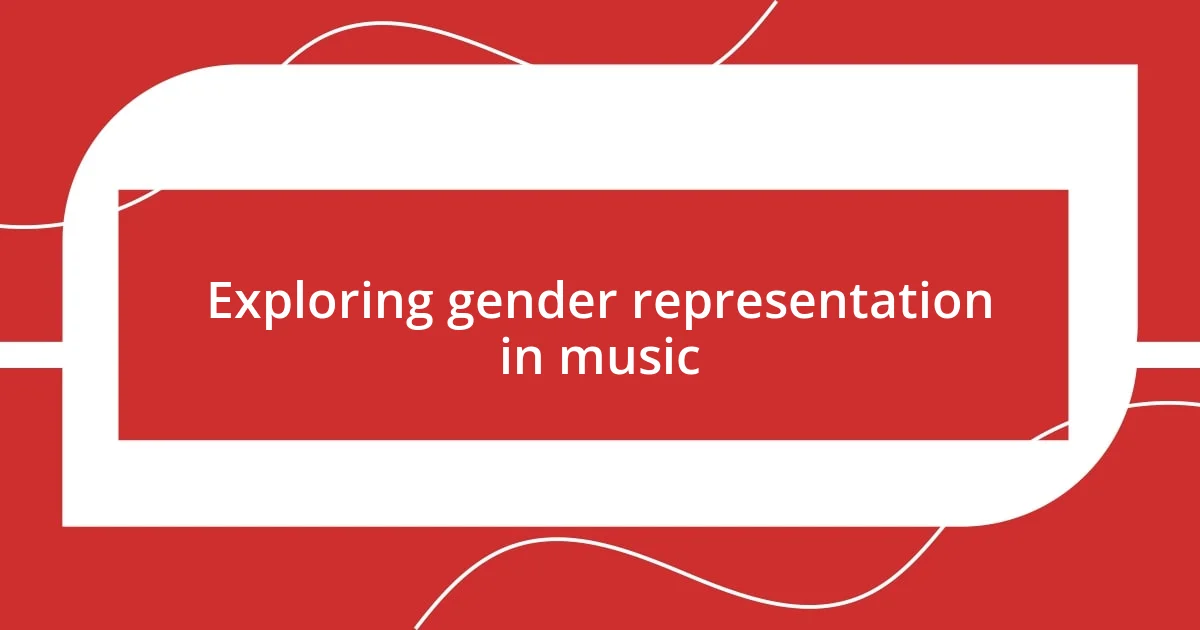
Exploring gender representation in music
When I think about gender representation in music, I can’t help but recall my college days, eagerly attending concerts where the stage felt dominated by male artists. It left me wondering: why don’t we see more diverse voices? Representation matters, and it’s striking how the narrative is often shaped by a limited perspective, leading some fans to miss out on the rich tapestry of talent that exists across the spectrum.
Reflecting on a recent event, I attended a local festival where women musicians took center stage, and the energy was palpable. They were not just performers; they told stories, shared experiences, and connected deeply with the audience. This made me feel a sense of hope for the future of music, where various gender identities could take their rightful place, leading to a more nuanced and powerful industry.
There’s something deeply transformative about hearing a song sung by a woman or non-binary artist that defies traditional narratives. It’s like a breath of fresh air that challenges the status quo. What if we all took a moment to actively seek out and support these artists? Imagine the shifts we could see in the music landscape, fostering an environment where everyone can express their truth.
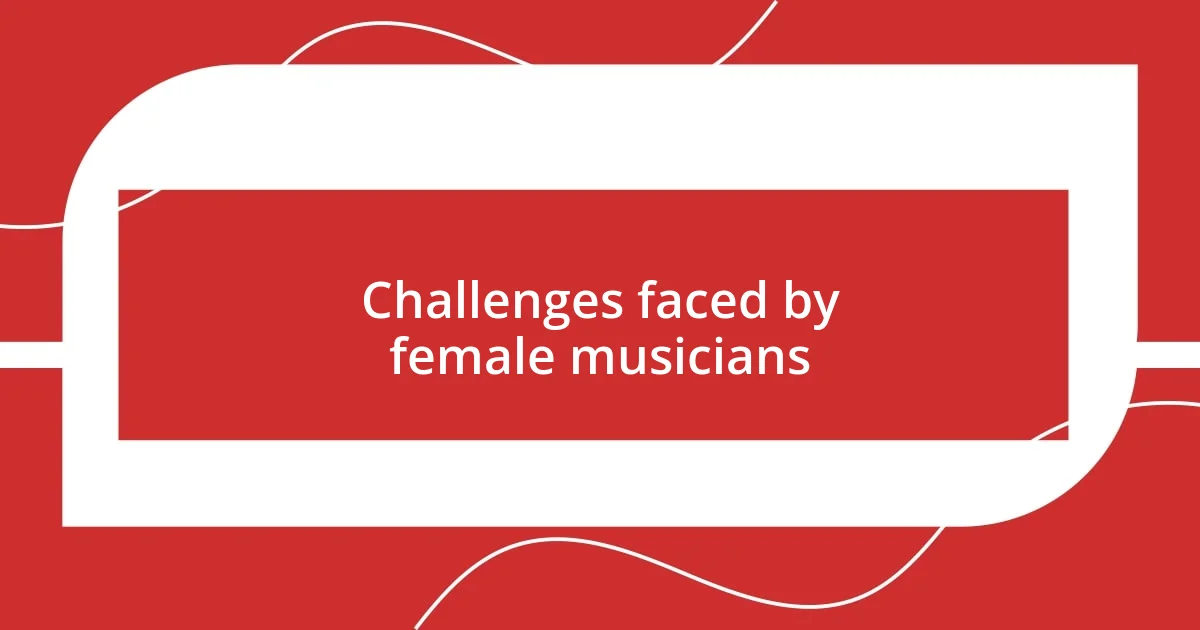
Challenges faced by female musicians
It’s disheartening to see how often female musicians face scrutiny for their appearances rather than their talents. I remember watching a live performance online, captivated by a young female guitarist’s skillful play. Yet, the comments section became flooded with critiques about her outfit instead of celebrating her artistry. This made me ponder the obstacles women confront daily—proving their worth while navigating unrealistic standards.
Moreover, the industry often limits opportunities for female musicians. I once chatted with an aspiring singer-songwriter who expressed frustration over the lack of female representation in festival lineups. It struck me that many talented women are overlooked, not because of their abilities but rather due to the industry’s bias toward male headliners. This systemic barrier can stifle creativity and hinder diverse voices from emerging.
Networking is yet another hurdle many women musicians face. A female friend in the industry recounted her experience at gatherings where she felt sidelined in discussions, her contributions often underestimated. This echoed a familiar theme: the need for inclusivity and mentoring in music. Strengthening supportive networks can empower women and amplify their voices, allowing them to thrive in a space that has often marginalized them.
| Challenge | Impact on Female Musicians |
|---|---|
| Appearance Scrutiny | Focus shifts from talent to physical appearance, leading to self-doubt. |
| Limited Opportunities | Fewer chances for gigs and exposure due to industry bias. |
| Networking Barriers | Difficulty in forming valuable connections, leading to feelings of isolation. |
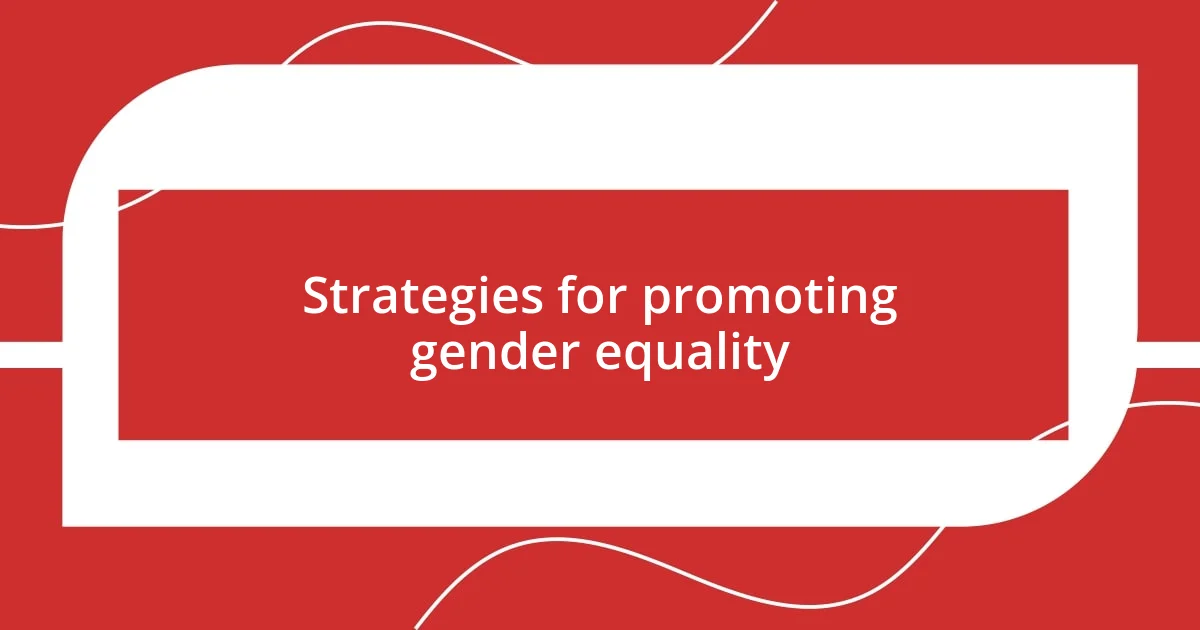
Strategies for promoting gender equality
One powerful strategy to promote gender equality in music is to create and support initiatives focused on mentorship for young female artists. I often think back to a local workshop I attended, where established female musicians shared their journeys and offered valuable guidance. That experience highlighted the importance of having role models who genuinely understand the unique challenges faced by women in the industry. Could you imagine how different the landscape might look if every aspiring musician had access to such support?
Additionally, advocating for gender parity in festival lineups and award nominations can create a more balanced representation. I recall an eye-opening conversation with a friend who organizes events. She shared her commitment to ensuring her festivals feature equal gender representation. It was inspiring to hear her challenge the status quo and actively seek out diverse talents. Why shouldn’t every music event celebrate the full spectrum of voices?
Finally, fostering an inclusive culture within music venues and industry organizations is crucial for creating lasting change. I’ve witnessed firsthand how some spaces can feel unwelcoming to women, making it difficult to break through. By prioritizing training on gender bias and inclusivity, we can transform these environments into supportive communities. Don’t we all deserve to feel safe and empowered to express our creativity?



